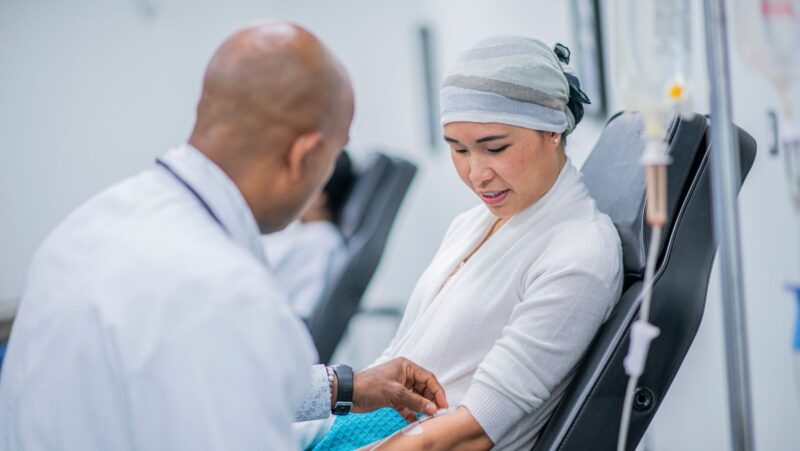
A Bachelor’s degree in Health Science opens doors to countless career opportunities in healthcare and wellness. This versatile degree equips graduates with a strong foundation in anatomy, physiology, healthcare systems and public health – making them valuable assets in various medical settings.
From clinical roles to administrative positions, health science graduates can pursue diverse career paths that match their interests and skills. The healthcare industry continues to grow rapidly, with the U.S. Bureau of Labor Statistics projecting a 16% increase in healthcare occupations through 2030. This growth rate surpasses most other industries and promises strong job security for health science professionals.
What Jobs can i get with a Bachelors in Health Science
A Bachelor’s in Health Science provides comprehensive education in healthcare fundamentals specialized coursework in multiple disciplines of health sciences. The degree combines theoretical knowledge with practical applications preparing graduates for diverse healthcare roles.
Core Knowledge and Skills Gained
Health Science students develop essential competencies across multiple healthcare domains:
- Research methodology for analyzing health data studies
- Medical terminology for clinical documentation procedures
- Healthcare technology proficiency in electronic health records
- Patient care protocols for various medical settings
- Health education techniques for community outreach
- Laboratory skills for diagnostic testing procedures
- Healthcare regulations compliance methods
- Medical ethics decision-making frameworks
Common Specializations
Health Science programs offer specialized tracks aligned with specific career paths:
| Specialization | Key Focus Areas |
|---|---|
| Public Health | Disease prevention epidemiology community health |
| Healthcare Administration | Management operations policy planning |
| Clinical Research | Trial protocols data analysis medical studies |
| Health Education | Program development wellness promotion outreach |
| Pre-Professional | Medical school preparation clinical foundations |
| Health Informatics | Data management systems technology integration |
- Customized internships in healthcare facilities
- Research projects with faculty mentorship
- Clinical rotations in medical settings
- Community health program development
- Healthcare technology implementation training
- Professional certification preparation courses
Clinical Healthcare Positions
Clinical healthcare positions offer direct involvement in patient care settings while utilizing health science expertise. These roles combine administrative responsibilities with clinical knowledge to improve healthcare delivery systems.
Medical and Health Services Manager
Medical and Health Services Managers oversee healthcare facility operations with annual salaries ranging from $65,000 to $120,000. They coordinate medical services in specific departments like cardiology radiology or entire healthcare facilities. Their responsibilities include:
- Managing staff schedules staffing budgets facilities maintenance
- Implementing healthcare policies procedures regulatory compliance
- Analyzing performance metrics quality indicators patient satisfaction data
- Coordinating with medical staff insurance providers external stakeholders
Clinical Research Coordinator
Clinical Research Coordinators manage medical studies clinical trials with salaries between $55,000 to $85,000. They work in hospitals research institutions pharmaceutical companies supporting scientific investigations. Key duties include:
- Recruiting screening participants for clinical trials
- Collecting organizing research data documentation
- Monitoring patient safety protocol compliance
- Coordinating with physicians investigators regulatory boards
- Managing research budgets equipment supplies
- Creating implementing patient care plans
- Managing patient appointments referrals medical records
- Coordinating services across multiple healthcare providers
- Monitoring treatment progress insurance authorizations
- Educating patients families about care instructions medications
| Position | Entry-Level Salary | Experienced Salary |
|---|---|---|
| Medical Services Manager | $65,000 | $120,000 |
| Clinical Research Coordinator | $55,000 | $85,000 |
| Patient Care Coordinator | $45,000 | $75,000 |
Public Health Career Paths
Public health professionals with a Bachelor’s in Health Science promote community wellness through education, outreach programs, and health initiatives. These roles focus on preventing diseases and improving population health outcomes.
Health Education Specialist
Health Education Specialists design and implement programs to promote healthy behaviors in communities. They analyze health trends, develop educational materials, conduct workshops, and evaluate program effectiveness. The role offers an average salary of $48,860 to $68,350, with opportunities in schools, hospitals, nonprofit organizations, and government agencies.
Community Health Worker
Community Health Workers serve as liaisons between healthcare systems and local populations. They collect data on health concerns, connect residents with medical services, and provide culturally appropriate health information. These professionals earn between $35,830 to $49,990 annually while working in community centers, public health departments, and outreach organizations.
Public Health Program Coordinator
Public Health Program Coordinators manage prevention initiatives, health campaigns, and community wellness programs. They oversee budgets, supervise staff, analyze program metrics, and collaborate with stakeholders to achieve public health objectives. The position commands salaries ranging from $45,780 to $75,690, with roles in government agencies, healthcare facilities, and international organizations.
| Public Health Role | Entry-Level Salary | Senior-Level Salary |
|---|---|---|
| Health Education Specialist | $48,860 | $68,350 |
| Community Health Worker | $35,830 | $49,990 |
| Public Health Program Coordinator | $45,780 | $75,690 |
Healthcare Business Opportunities
The healthcare business sector offers lucrative career paths for Health Science graduates who combine medical knowledge with business acumen. These roles focus on improving healthcare delivery systems efficiency while maintaining quality patient care standards.
Healthcare Consultant
Healthcare consultants analyze organizational processes efficiency optimization with salaries ranging from $65,000 to $110,000 annually. They assess healthcare facilities’ operations workflows identify areas for improvement implement cost-effective solutions train staff members on new procedures. Healthcare consultants work with:
- Electronic health record system implementations
- Revenue cycle management optimization
- Compliance program development
- Quality improvement initiatives
- Strategic planning processes
Medical Device Sales Representative
Medical device sales representatives earn between $75,000 to $150,000 annually including commission-based incentives. They connect healthcare providers with essential medical equipment technologies:
- Operating room equipment
- Diagnostic imaging systems
- Patient monitoring devices
- Surgical instruments
- Therapeutic devices
Health Information Specialist
Health information specialists manage healthcare data systems earning $45,000 to $75,000 annually. Their primary responsibilities include:
| Core Functions | Technical Requirements |
|---|---|
| Medical coding | ICD-10 proficiency |
| Records management | EMR system expertise |
| Data analysis | HIPAA compliance |
| Quality assurance | Database management |
| Documentation | Healthcare software |
- Medical billing departments
- Healthcare providers
- Insurance companies
- Compliance officers
- IT departments
Government and Non-Profit Roles
Government agencies offer health science graduates stable employment opportunities with competitive benefits packages. Non-profit organizations provide positions focused on community impact through healthcare initiatives.
Health Policy Analyst
Health Policy Analysts evaluate healthcare legislation to determine its impact on public health programs. These professionals earn $58,000 to $89,000 annually analyzing policy effectiveness monitoring healthcare trends creating policy recommendations. Key responsibilities include:
- Conducting research on healthcare policies regulations
- Analyzing population health data statistics
- Preparing detailed policy briefs reports
- Collaborating with stakeholders policymakers
- Developing evidence-based recommendations
Program Manager
Program Managers oversee healthcare initiatives within government departments non-profit organizations. These positions offer salaries ranging from $65,000 to $95,000 with opportunities for advancement into senior leadership roles. Core duties include:
- Designing implementing health programs
- Managing program budgets resources
- Supervising staff volunteers
- Tracking measuring program outcomes
- Establishing community partnerships
- Researching funding opportunities
- Writing compelling grant proposals
- Gathering supporting documentation
- Managing application deadlines
- Tracking grant reporting requirements
- Maintaining donor relationships
| Role | Salary Range | Key Requirements |
|---|---|---|
| Health Policy Analyst | $58,000 – $89,000 | Policy analysis skills statistical expertise |
| Program Manager | $65,000 – $95,000 | Project management experience leadership abilities |
| Grant Writer | $45,000 – $75,000 | Strong writing skills research capabilities |
Advancing Your Career
Health science graduates enhance their career prospects through professional development opportunities. Strategic advancement paths include specialized certifications and advanced degrees that align with specific career goals.
Additional Certifications
Professional certifications expand career opportunities for health science graduates through specialized credentials:
- Certified Health Education Specialist (CHES) certification validates expertise in community health education
- Registered Health Information Administrator (RHIA) certification qualifies graduates for health information management roles
- Certified Clinical Research Professional (CCRP) certification demonstrates clinical research competency
- Project Management Professional (PMP) certification strengthens healthcare management capabilities
- Certified Professional in Healthcare Quality (CPHQ) certification focuses on quality improvement processes
Graduate School Options
Advanced degrees open pathways to specialized and leadership positions in healthcare:
| Degree Program | Career Focus | Average Time to Complete |
|---|---|---|
| Master of Public Health (MPH) | Population health management | 2 years |
| Master of Health Administration (MHA) | Healthcare leadership | 2-3 years |
| Master of Science in Health Informatics | Healthcare technology | 2 years |
| Doctor of Physical Therapy (DPT) | Clinical practice | 3 years |
| Medical School (MD/DO) | Clinical medicine | 4 years |
- Healthcare Policy and Management
- Epidemiology and Biostatistics
- Environmental Health Sciences
- Health Communication
- Global Health Leadership
Healthcare Innovation
A Bachelor’s degree in Health Science opens doors to numerous rewarding career paths across healthcare clinical public health business and government sectors. With competitive salaries strong job security and abundant growth opportunities graduates can choose from roles that match their interests and skills.
Whether pursuing direct patient care administrative positions or community health initiatives health science graduates are well-equipped to make meaningful contributions to the healthcare field. Through professional certifications and advanced degrees they can further specialize and advance their careers while staying at the forefront of healthcare innovation.
The versatility of this degree combined with the healthcare industry’s continuous growth makes it an excellent choice for those seeking a stable and fulfilling career in health services.













